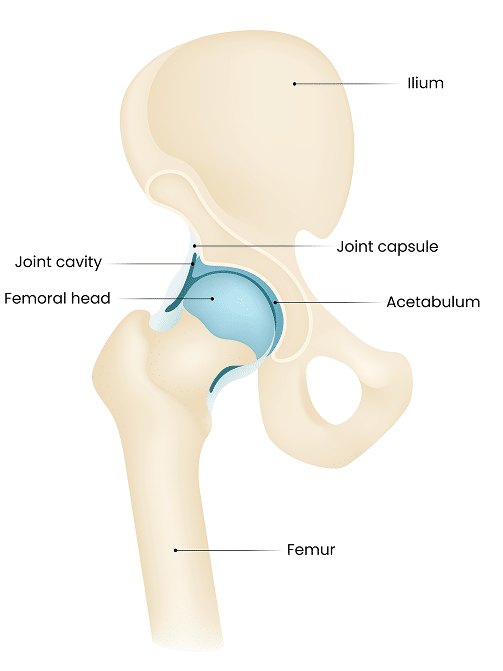Common Causes of Hip Pain and Loss of Hip Movement
The most common cause of chronic hip pain and disability is arthritis. Osteoarthritis, rheumatoid arthritis, and traumatic arthritis are the most common forms of this disease.
Osteoarthritis usually occurs in people aged 50 and older, and often in people with a family history of arthritis. The cartilage that cushions the hip bones softens and wears away. The bones then rub against one another causing hip pain and stiffness.
Rheumatoid arthritis is a systematic autoimmune disease where the synovial membrane lining the inner surface of the joint becomes thickened and inflamed, producing too much fluid that overfills the hip joint space. This chronic inflammation can damage cartilage and eventually cause cartilage loss, pain, and stiffness throughout the body.
Traumatic arthritis can follow a serious hip injury because fracture or severe tears of the hip ligaments may damage the articular cartilage over time, causing hip pain and limiting function.
Avascular necrosis occurs when the blood supply to the hip bone becomes compromised causing bone death and progressive collapse of the femoral head.




